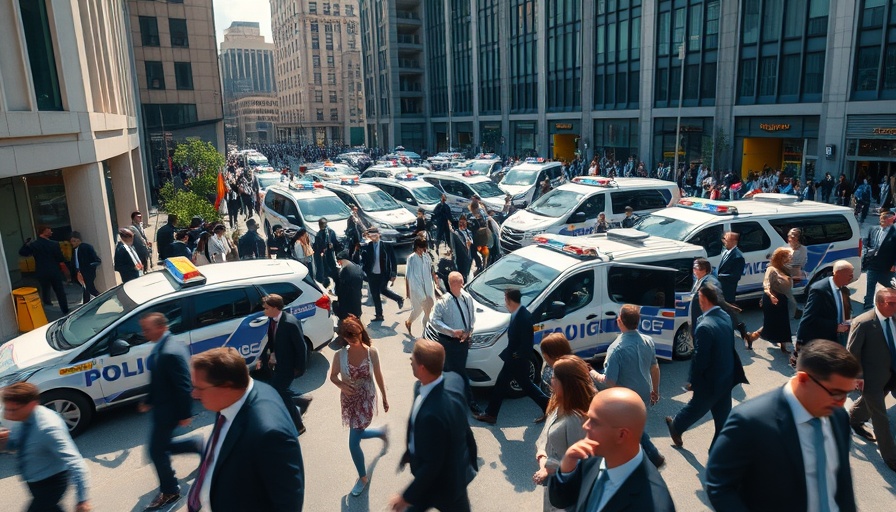
The Political Landscape in Guinea: A Fractured Democracy
Guinea's recent political maneuvers have raised serious concerns about the democratic future of the nation, especially as the military junta continues its aggressive approach to suppress dissent. In a startling move, the Junta led by General Madi Dumboya has suspended three significant political parties, including the Union of Democratic Forces and the Party of Renewal and Progress, effectively sidelining the political opposition just as the country gears up for a controversial constitutional referendum.
In "Guinea’s junta suspends three main political parties," the discussion dives into the precarious state of democracy in Guinea, exploring key insights that sparked deeper analysis on our end.
This referendum, set to take place on September 21st, aims to reshape Guinea's constitution, a move critics fear could lay the groundwork for General Dumboya’s authoritarian rule. By silencing major opposition voices in a country already plagued by political instability since the 2021 coup, the Junta appears set to consolidate its power while stifling democratic processes that are essential to any functioning government.
The Constitutional Referendum: A Power Play?
Guinea's military leaders are pitching the upcoming constitutional changes as a necessary step for modernization and national unification, but critics are skeptical. The potential for General Dumboya to position himself favorably in future elections remains a crucial point of contention. The recent coup that dethroned President Alpha Condé, who ruled for a decade, was predominantly condemned as a power grab. Observers argue that the constitutional changes could legitimise a political framework that allows the military to maintain control indefinitely, creating a veneer of legality for what many consider a tyrannical rule.
Public Sentiment and Responding Protests
As mass protests are scheduled for September 5th, organized primarily by opposition groups aiming to denounce the junta’s actions, the sentiment among the Guinean population is one of dissent and frustration. However, the military government has taken preemptive measures to stifle such dissent; protests were banned in 2022, and opposition leaders have faced increased harassment, arrests, and forced exile. These actions only serve to intensify public ire, as citizens feel increasingly alienated from their political system.
The Risks of Suppression: A Dangerous Precedent
The decision to suspend political parties signals a dangerous trend in which dissent is met with brute force rather than dialogue. The systematic suppression undermines not only the political landscape but also the very fabric of civic life in Guinea. The potential dissolution of political parties with differing viewpoints restricts public discourse and threatens to create a one-party regime under the guise of security and national interest. When the rights of citizens to engage politically are curtailed, the ramifications can be dire, often leading to escalated unrest and violence.
Comparative Context: Political Crisis Across Africa
Guinea’s scenario echoes broader themes found in various African nations grappling with political upheaval. Similar situations have unfolded in countries like Zimbabwe and Sudan, where military coups have prompted swift crackdowns on political opposition and freedom of speech. Analysts suggest that without intervention from regional powers or international coalitions, a lack of accountability may very well worsen the situation for Guinean citizens.
The Role of Civil Society and International Response
In order to enforce accountability, civil society must take a more prominent role in advocating for democratic processes. Activist groups and community organizations hold the key to galvanizing public sentiment and creating a formidable opposition to repression. Meanwhile, the international community must step up its diplomatic efforts. Pressure from external nations or organizations like the African Union could play a powerful role in nudging the junta toward adhering to democratic norms.
Conclusion
Guinea's contemporary struggle not only raises critical questions about governance and democracy but also serves as a sobering reminder of the fragility of these values. The upcoming referendum is a pivotal moment, one that requires careful scrutiny and active civic engagement to ensure that the voices of the Guinean people are heard amidst the clamor for power. It is paramount for Africans and the global community alike to support initiatives that promote democratic governance and accountability in the region, as the stakes could not be higher.
 Add Row
Add Row  Add
Add 




Write A Comment